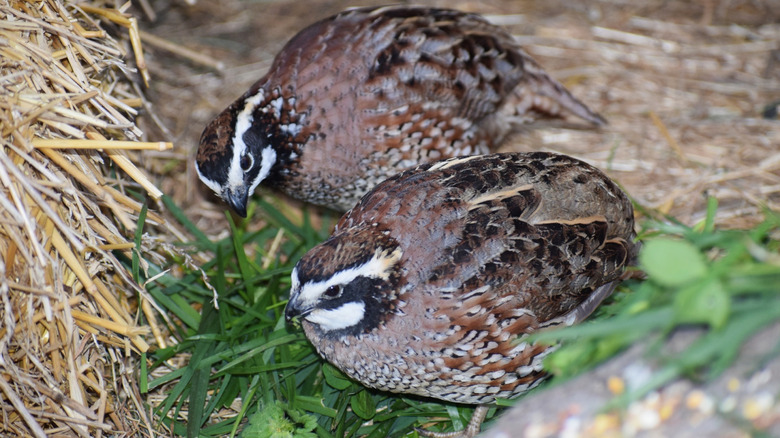Taking Care Of Bobwhite Quail Chicks
Hatching
Hatching
During the hatching season, bobwhite quail eggs should be gathered three to five times per day. If left too long, they will go bad quickly, especially in hot weather. For hatching, they are placed in a preheated forced-air incubator at 100.25 degrees F for 20 days. On day 21, the temperature should be lowered by 1 degree F. It should take the eggs around 24 days to hatch. The average size clutch is around 14 eggs.
Freshly-hatched bobwhite quail chicks are extremely small. Most are not much bigger than a quarter.
Brooding
Brooding
Once the chicks are completely dry, they must "brood" for six weeks under a heat lamp, generally a ceramic-socket brooder heat lamp in a secure pen. The ideal temperature for the brooding area is 100 degrees F for the first week, reduced in 5-degree increments every week thereafter for six weeks.
Food and Water
Food and Water
When very young, quail chicks eat starter feed and drink room-temperature water from water dispensers. Feeders should be very shallow to start. As the chicks grow, they can use larger feeders and water fountains. Once the chicks are over a week old, cylindrical feeders and waterers can be used.
When the quail are around six weeks old, they can be moved out of the brooding pen. They will have their adult plumage by 10 weeks of age.
Cite This Article
MLA
Sanders, April. "Taking Care Of Bobwhite Quail Chicks" sciencing.com, https://www.sciencing.com/taking-care-of-bobwhite-quail-chicks-13652632/. 30 April 2009.
APA
Sanders, April. (2009, April 30). Taking Care Of Bobwhite Quail Chicks. sciencing.com. Retrieved from https://www.sciencing.com/taking-care-of-bobwhite-quail-chicks-13652632/
Chicago
Sanders, April. Taking Care Of Bobwhite Quail Chicks last modified March 24, 2022. https://www.sciencing.com/taking-care-of-bobwhite-quail-chicks-13652632/
